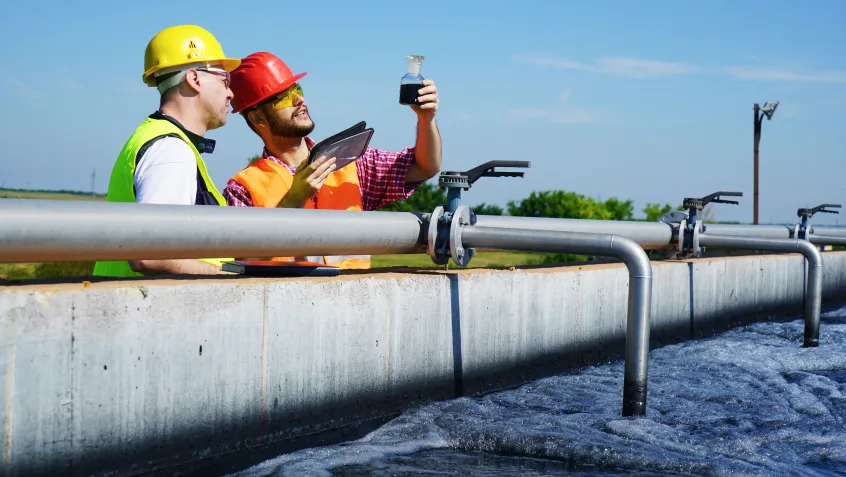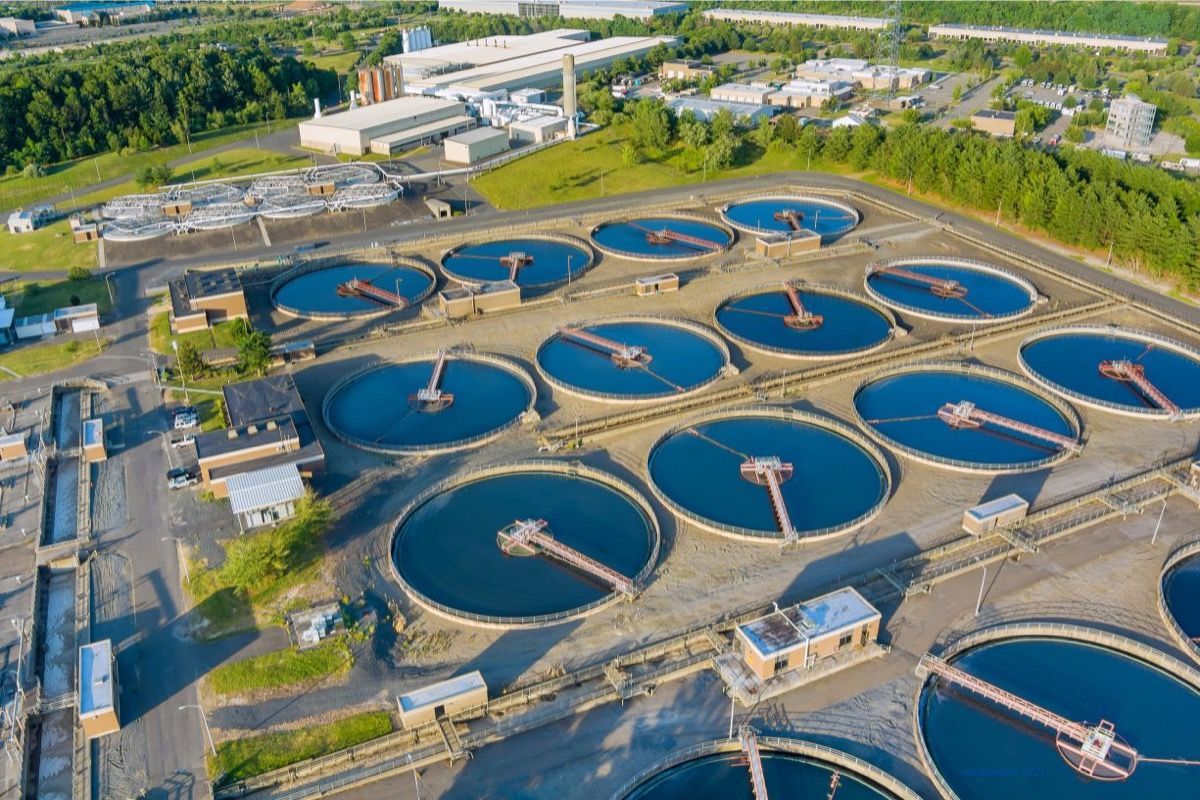Exploring Water Technology Startups: Exactly How They Revolutionize Sustainable Solutions
Water Technology startups are arising as critical gamers in the pursuit for lasting solutions to international water concerns. These business utilize cutting-edge technologies to enhance water effectiveness and monitoring. Their contributions deal with pushing obstacles such as scarcity and contamination. Despite their capacity, they face numerous obstacles that might impact their success. Recognizing these dynamics drops light on the future of water sustainability and the role these start-ups might play fit it.
The Significance of Water Technology in Today's World
As worldwide water scarcity intensifies, the significance of water Technology ends up being increasingly obvious. Water Technology plays an important duty in attending to the obstacles presented by raising and lessening fresh water resources need. It encompasses a wide series of developments, including sophisticated filtration systems, wastewater treatment technologies, and wise watering remedies. These innovations not only boost the efficiency of water usage yet likewise advertise lasting techniques throughout numerous sectors, including agriculture, market, and metropolitan development.
The value of water Technology extends beyond source management. It fosters durability against climate modification influences, such as droughts and floodings, by providing flexible services for water preservation and monitoring. Furthermore, it sustains public health by making sure accessibility to clean and risk-free drinking water. As the world faces growing water-related challenges, the integration of cutting-edge water modern technologies is important for fostering sustainable development and safeguarding water schedule for future generations.
Ingenious Solutions From Water Tech Startups
While conventional strategies to water management have actually offered their function, a new age of water tech start-ups is reinventing the sector with ingenious services (Water Technology Startups). These companies utilize sophisticated innovations to deal with pressing water issues, such as scarcity, contamination, and ineffective distribution. Many start-ups use synthetic knowledge and maker knowing to optimize water use and predict need, leading to more lasting methods
Furthermore, several companies concentrate on creating sophisticated purification systems that get rid of contaminants and make water safe for intake. Others explore decentralized water therapy technologies, permitting communities to manage their water sources better. Furthermore, some start-ups are pioneering wise watering services that decrease water waste in agriculture, advertising environmental preservation.
Instance Studies: Successful Water Technology Startups
Various water Technology start-ups have actually emerged as leaders in dealing with international water difficulties with cutting-edge techniques. One remarkable example is Xylem, which concentrates on water analytics and smart infrastructure to maximize water usage and reduce waste. Their remedies have been applied in numerous towns, demonstrating substantial renovations in water administration performance.
Another successful startup, No Mass Water, has actually created solar-powered hydropanels that remove water vapor from the air, offering lasting alcohol consumption water in deserts. Water Technology Startups. This Technology has been deployed in several nations, making certain areas have accessibility to tidy water
AquaVenture Holdings operates a diverse portfolio of water-as-a-service remedies, resolving water shortage with desalination and wastewater therapy. Their projects have proven vital in regions facing extreme water lacks, showcasing the potential of innovative water technologies to develop enduring, positive influences. These instance research studies highlight the transformative potential of startups in the water Technology industry.
The Role of Smart Technology in Water Monitoring
Smart Technology plays a necessary function in modern water monitoring by leveraging IoT applications to enhance source usage. Data analytics enhances performance by supplying actionable understandings, while remote tracking remedies enable real-time oversight of water supply. With each other, these developments change exactly how water is taken care of, promoting sustainability and functional efficiency.
IoT Applications in Water
As water scarcity and administration challenges escalate worldwide, the assimilation of Web of Points (IoT) applications has emerged as a crucial service in maximizing water resources. IoT Technology assists in real-time monitoring and analysis of water supply, enabling extra effective use and monitoring. Sensors released in numerous water infrastructures can track high quality, circulation rates, and leakage, giving beneficial data to stakeholders. This data encourages consumers and utilities to make educated choices, reducing waste and enhancing preservation initiatives. Furthermore, clever watering systems utilize IoT to enhance water distribution for agriculture, guaranteeing that crops obtain the best quantity of water at the appropriate time. In general, IoT applications are changing typical water management practices, cultivating sustainability and resilience in water resource systems.
Data Analytics for Efficiency
Utilizing data analytics is necessary for boosting performance in water administration. Water Technology start-ups are significantly making use of innovative analytics to maximize source allowance and minimize waste. By examining data from various sources, these start-ups can recognize patterns and fads that notify much better decision-making. As an example, predictive analytics can anticipate water demand, allowing utilities to readjust supply as necessary, consequently lessening lacks and surpluses. Additionally, real-time information processing enables the prompt detection of leakages and inadequacies within circulation systems, significantly reducing functional expenses. Data-driven insights encourage stakeholders to carry out targeted preservation strategies, cultivating sustainable practices. Essentially, integrating information analytics into water administration not only streamlines procedures but additionally promotes lasting sustainability in water resource use.
Remote Monitoring Solutions
While standard water management systems often have problem with inefficiencies, remote surveillance services are changing how water resources are taken care of. These innovative innovations make it possible for real-time data collection and evaluation, allowing stakeholders to keep track of water top quality, flow prices, and usage patterns from afar. Utilizing sensors and IoT gadgets, remote monitoring gives instant understandings that help with positive decision-making. This change not only improves functional efficiency however likewise promotes sustainability by minimizing water waste and maximizing resource allowance. In addition, remote surveillance systems can determine prospective concerns before they escalate, consequently decreasing the risk of contamination or facilities failure. As water Technology startups remain to create these remedies, the market is positioned for substantial advancements in sustainable water monitoring methods.
Obstacles Facing Water Technology Startups
Water Technology startups experience considerable difficulties that can impede their development and success. Trick concerns consist of safeguarding adequate funding, maneuvering through complex regulatory environments, and contending in a congested market. These challenges require tactical planning and innovation to get over.
Financing and Financial Investment Obstacles
Technology in water Technology holds enormous possibility for addressing international difficulties, startups in this sector usually deal with significant financing and investment obstacles. Numerous investors continue to be careful, perceiving the water market as high-risk as a result of its complicated regulative landscape and long development timelines. Furthermore, startups commonly have a hard time to demonstrate instant profitability, which can hinder prospective backers. Water Technology Startups Typical financial backing might overlook water technology, favoring markets with quicker returns, such as tech or consumer goods. Safeguarding grants and federal government financing can be competitive and time-consuming, additional making complex financial stability. Therefore, many ingenious water Technology start-ups find themselves in a ragged edge, calling for innovative funding methods to browse these financial barriers and achieve their goals
Governing Conformity Issues
Steering regulative conformity is a substantial challenge for startups in the water Technology sector, as they need to face a myriad of local, national, and international guidelines. These guidelines often encompass water high quality criteria, ecological protection legislations, and security protocols, which can vary widely throughout jurisdictions. Start-ups may locate it challenging to navigate this complex landscape, especially when scaling operations or going into new markets. The costs associated with compliance can be substantial, diverting sources far from innovation and product development. Additionally, hold-ups in getting essential authorizations or qualifications can impede growth and market entrance. A durable understanding of regulatory structures is necessary for these start-ups to guarantee sustainable procedures and stay clear of possible legal repercussions.
Market Competitors Characteristics
As water Technology startups arise in an affordable landscape, they face countless difficulties that can restrain their growth and advancement. Established firms usually control the market, leveraging sources and experience to keep their positions. Startups battle with limited funding, which limits research and advancement abilities, making it challenging to complete on Technology and prices. Additionally, the rapidly evolving nature of water innovations demands constant adaptation, more stressing startup sources. Governing obstacles can complicate market access, as compliance with ecological requirements is critical yet costly. Bring in proficient skill in a specific niche area presents one more challenge, as larger firms may supply even more enticing employment bundles. As a result, these factors develop a complex setting for water Technology startups aiming to do well.

The Future of Water Technology and Sustainability

The future of water Technology will likely concentrate on integrating man-made knowledge and data analytics to optimize water distribution and usage patterns. By taking advantage of real-time information, firms can forecast lacks and manage sources a lot more properly. In addition, sustainable methods will come to be a keystone of the market, encouraging round economic climates where water is reused and treated. Inevitably, the continued development of water Technology will be important in producing resistant infrastructures with the ability of satisfying the challenges positioned by climate modification and population growth while advertising ecological stewardship.
Frequently Asked Questions
What Are the Key Metrics for Reviewing Water Technology Startups?
Key metrics for assessing water Technology start-ups include market potential, scalability, consumer procurement prices, revenue growth, modern technology advancement, regulatory compliance, ecological effect, competitive advantage, and group proficiency, all crucial for establishing long-lasting viability and success.
How Can People Support Water Technology Innovations?
People can support water Technology developments by purchasing startups, promoting for policy adjustments, taking part in neighborhood efforts, sharing expertise concerning lasting practices, and promoting understanding of water problems with local events and social media.
What Prevail Funding Resources for Water Technology Startups?
Usual funding resources for water tech startups include venture funding, government gives, crowdfunding platforms, angel capitalists, and corporate partnerships. These financial opportunities assist facilitate technology and advancement in lasting water management innovations.

Which Industries Advantage Most From Water Technology Advancements?
Industries such as agriculture, energy, manufacturing, and community solutions profit significantly from water Technology improvements. These technologies enhance water effectiveness, minimize prices, and promote sustainable methods, inevitably adding to ecological conservation and source administration.
Are There Any Kind Of Regulative Difficulties Particular to Water Modern Technology?
Yes, water Technology encounters regulative difficulties, consisting of conformity with ecological criteria, allowing procedures, and varying local laws. These complexities can hinder innovation and slow down the application of brand-new technologies in the water administration sector.
Water Technology startups are arising as crucial gamers in the pursuit for lasting solutions to worldwide water concerns. As global water scarcity heightens, the importance of water Technology comes to be progressively noticeable. Others explore decentralized water therapy innovations, enabling neighborhoods to handle their water sources more effectively. An additional effective startup, No Mass Water, has created solar-powered hydropanels that draw out water vapor from the air, giving lasting alcohol consumption water in arid regions. Their projects have actually shown vital in areas facing serious water shortages, showcasing the possibility of cutting-edge water modern technologies to develop long-term, favorable effects.